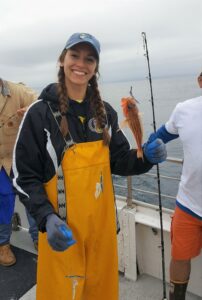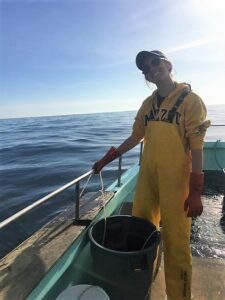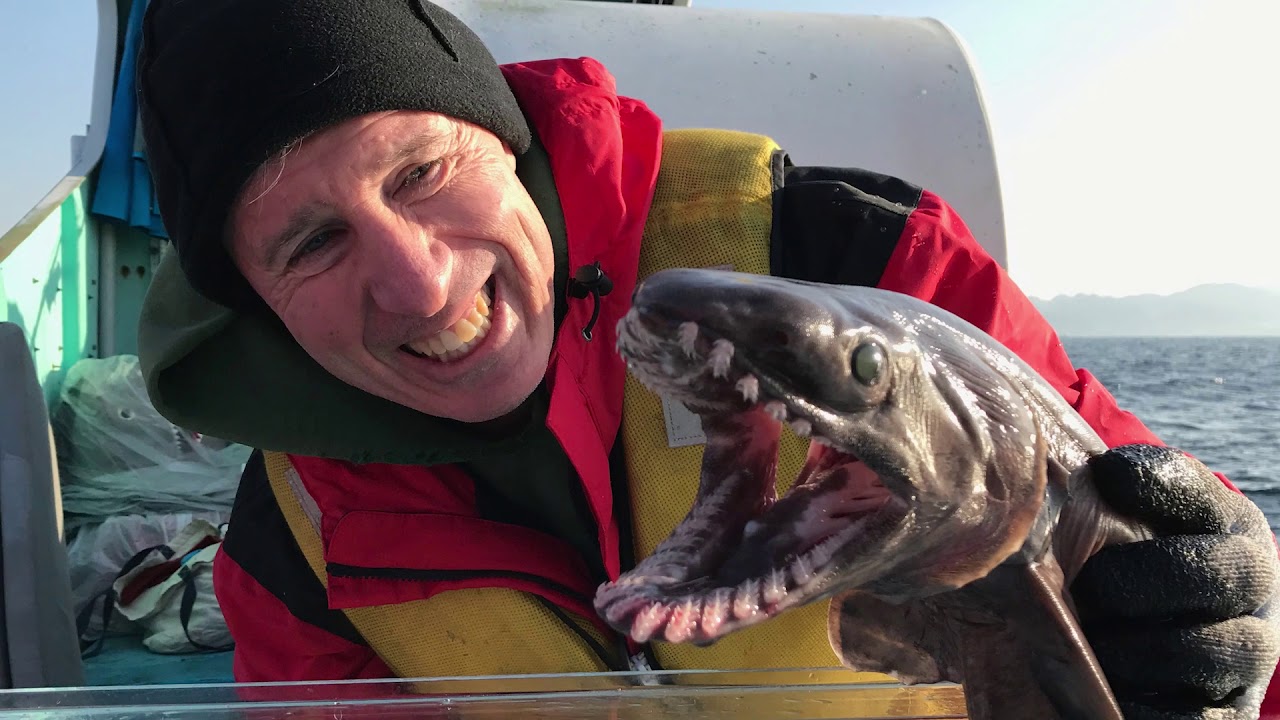Events
Open House 2025
Watch our MLML Open House 2025 Recap video!!
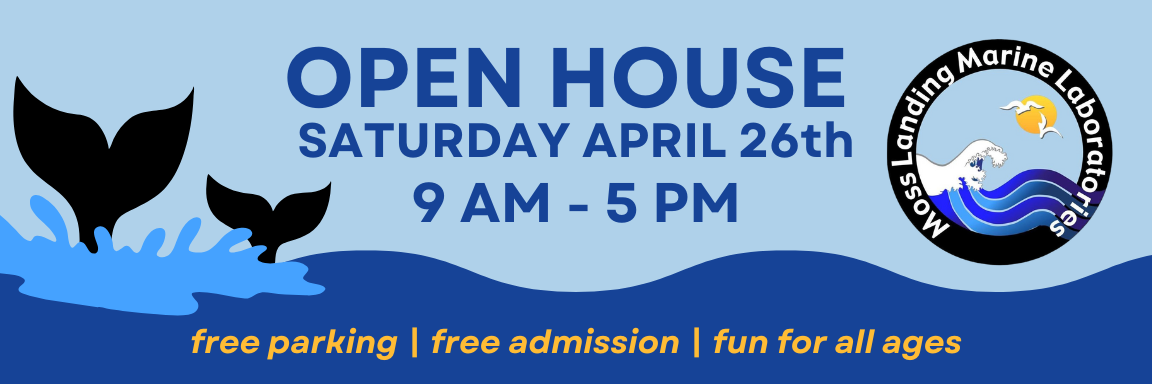
Join us for the 2025 in-person Open House!
- When? Saturday, April 26th, 2025: 9am to ~5pm
- Where? Moss Landing Marine Laboratories, 8272 Moss Landing Road, Moss Landing CA 95039
- What? Open House is a free, family friendly event hosted by MLML. Each year, we open our doors to the community and invite you to learn about the research that goes on here, both in your backyard and around the world. We will be hosting activities such as invertebrate touch tanks, educational speed talks, scavenger hunts, and exhibits where we teach you about everything from kelp forests to penguins in the Antarctic.
- Questions? Email us at mlml-openhouse@sjsu.edu.
ALL ADMISSION AND ACTIVITIES ARE FREE. However, please consider donating to the amazing students who plan and execute this event. Your donation will help the work we do here continue. There will be food and drinks available for purchase, as well as student artwork and student-designed MLML merch! Save the date and please RSVP!
Our silent auction is LIVE! Visit our online silent auction page to learn more and explore the items up for bid.
Check out our crowdfunding page to donate now!
Our overall fundraising goal is $25,000 to support student scholarships, marine research equipment, and funding to cover research experiences. Even if you are unable to make it to the Open House this year, please consider donating to help support MLML students. We will be sending special thank you's to our donors!
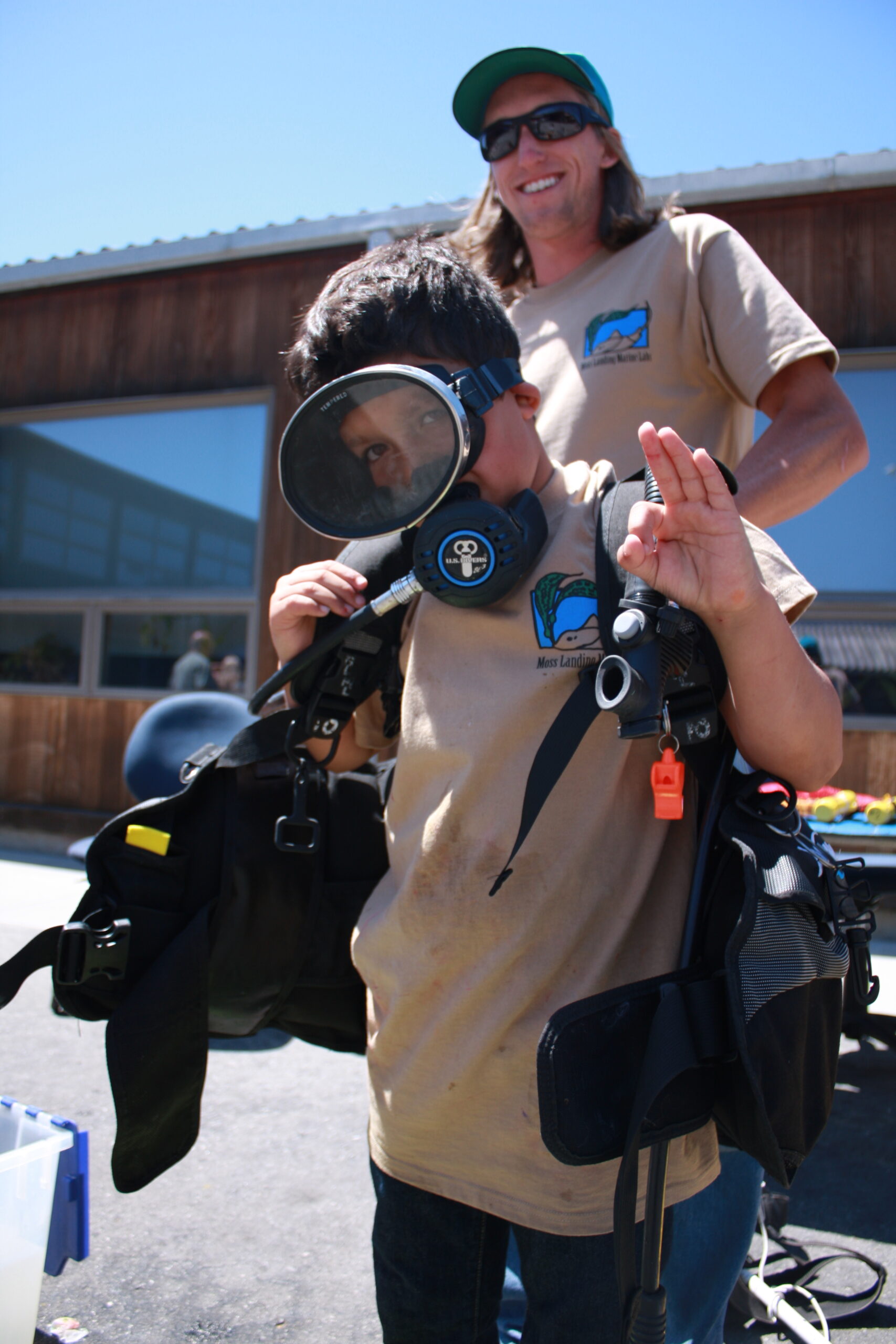
Explore our brochure for full event details, schedules, and a station map:
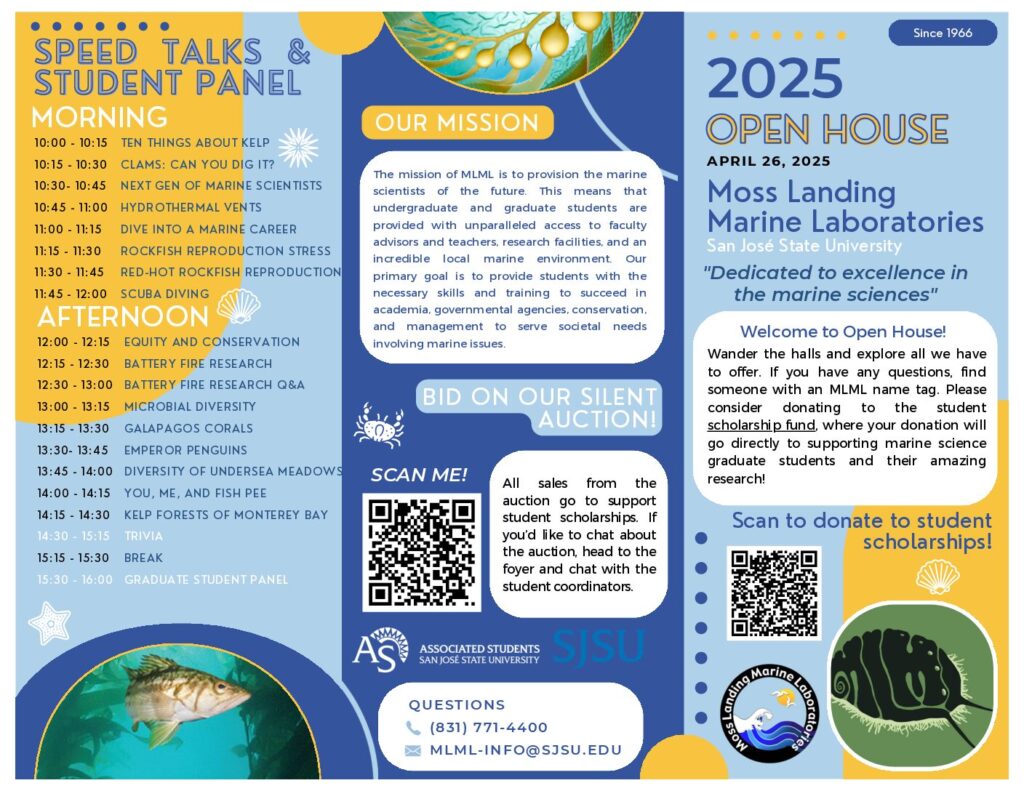
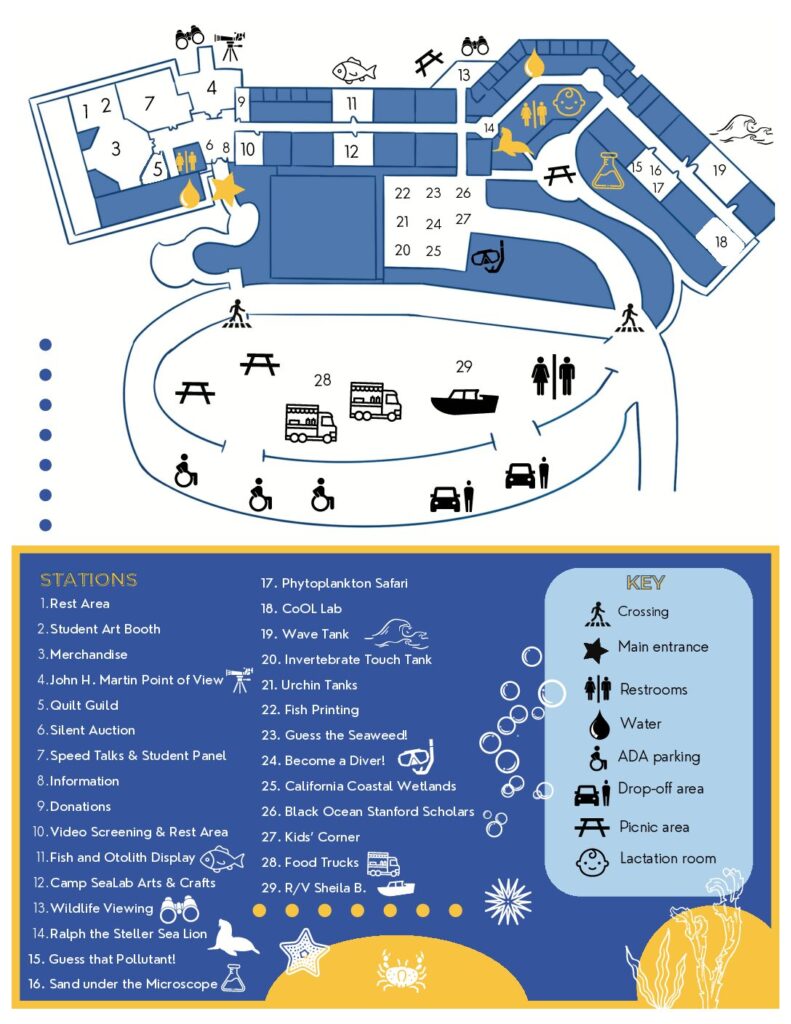
Watch our Open House 2025 Promo Video below!
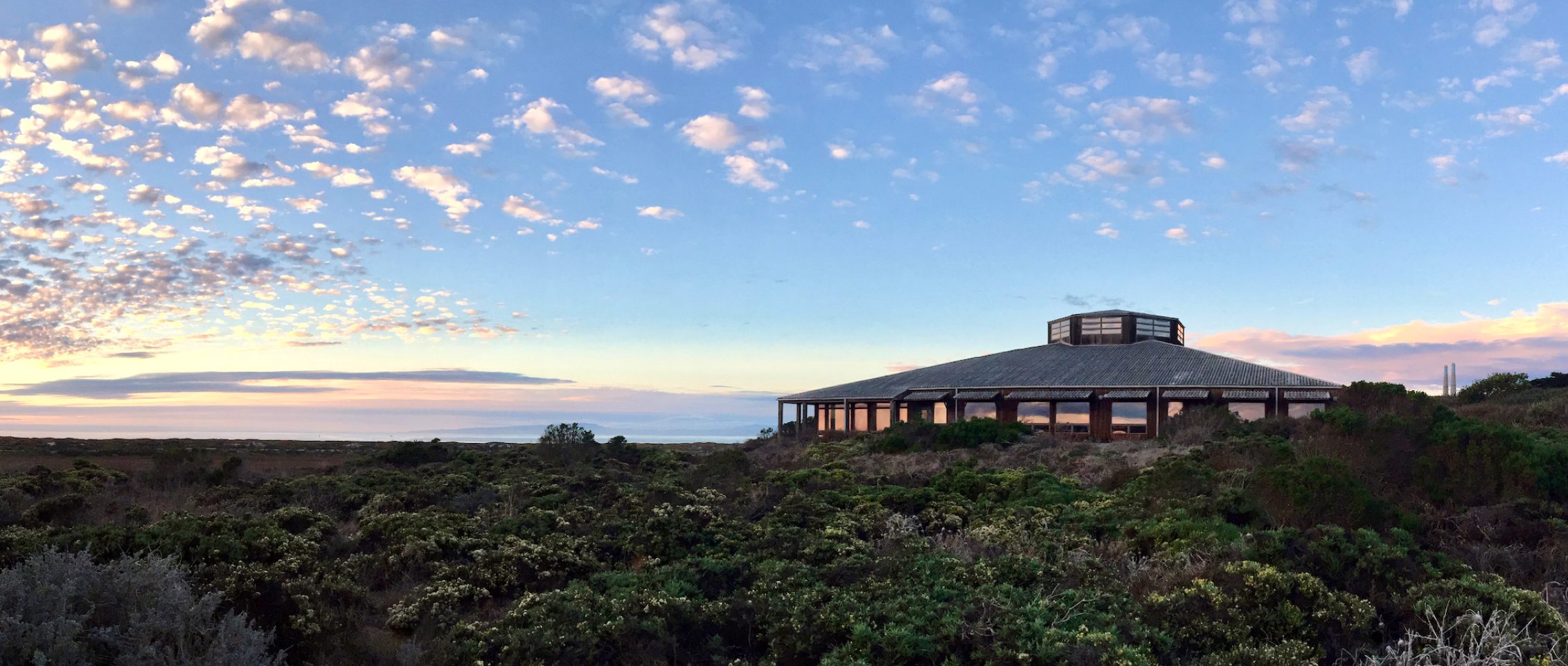
Directions
8272 Moss Landing Rd./ Moss Landing, CA 95039
If driving from the Monterey Peninsula, take Highway 1 North. Turn left onto Moss Landing Road (1.7 miles after Castroville). MLML main lab building is located at 8272 Moss Landing Rd. on the left directly after the cemetery.
If driving from the Santa Cruz area, take Highway 1 South. Turn right onto Moss Landing Road (0.2 miles past the Duke Energy Power Plant). Continue straight through town past the antique stores and post office. MLML main lab building is located at 8272 Moss Landing Rd. on the right just before the cemetery.
Thesis Defense by Holly Doerr – July 21 Livestream
"Species-specific transcriptomic responses of juvenile rockfish (Sebastes) to simulated future upwelling conditions"
A Thesis Defense by Holly Doerr
MLML Live-Stream | July 21, 2021 at 2 pm
Holly graduated from the University of Missouri – Columbia (MU; MIZZOU) in 2016 with a B.S. in Biological Sciences. During her time at MU, she worked under the guidance of Dr. Elizabeth Bryda in her Comparative Medicine lab at the MU College of Veterinary Medicine and investigated the effects of exposure to a common brain parasite (Pseudoloma neurophilia) on the behavior of larval zebrafish for her undergraduate capstone projects, and also assisted then PhD student Daniel Davis with his research investigating the ability for a common probiotic (Lactobacillus plantarum) to mitigate stress-induced dysbiosis in the gut microbiome of adult zebrafish. Holly began the Moss Landing Marine Laboratories (MLML) Masters program in the fall of 2016, initially joining the Biological Oceanography Lab and later switching to join the Ichthyology Lab at MLML and the Logan Lab at CSUMB in April of 2018 after realizing her interests were better suited studying marine fish physiology. During her time at MLML, she thoroughly enjoyed countless friendships and the ability to help on at least 10 other lab and thesis projects both at the bench and in the field. Likewise, during this time Holly also served three semesters as student body vice president, volunteered at 4 Open House events on the food committee, in the puppet show and in both the Bio Oce and Ichthyology labs, and was employed in a variety of roles - including one year as Student IT Help Desk Assistant, a little over a year as a research technician on a Ballast Testing project, two semesters as a TA, and two years as a Naturalist/Deckhand for Sea Goddess Whale Watching in Moss Landing, CA. In January of 2021 she moved to North Carolina with her husband where she finished up her thesis writing and is currently employed part-time as a research technician on UNC - Chapel Hill's shark surveys. After graduation, Holly looks forward to spending more time pursuing hobbies of swimming, hiking, camping, painting and reading, and exploring North Carolina with her husband and two dogs!
Thesis Abstract:
Anthropogenic climate change is predicted to trigger large-scale changes in ocean chemistry over the next few decades. These conditions may be exacerbated in coastal upwelling regions where strong, seasonal increases in pCO2 and hypoxia are expected to intensify under climate change. Nearshore rockfishes (genus Sebastes) may already be adapted to fluctuating upwelling environments along the west coast of North America, but further shifts in ocean chemistry could push individuals beyond their physiological thresholds. I examined the effects of future upwelling conditions by simulating fluctuating vs. static levels of combined high pCO2 and low dissolved oxygen (DO) on the gill transcriptomes of three juvenile rockfish congeners with different life histories: copper rockfish (Sebastes caurinus), gopher rockfish (S. carnatus) and black rockfish (S. melanops). Juveniles were collected and exposed to static-ambient (DO= 8mg/L; pH=8.0), static-moderate (DO=4.0mg/L; pH=7.5), static-extreme (DO=2.0mg/L; pH=7.3), or two fluctuating treatments that alternated between ambient and extreme conditions every 8 days, simulating upwelling and relaxation cycles. Gill tissue was sampled from fish following 13 weeks of exposure to each treatment. De novo transcriptome assemblies were constructed for each species, and compared for quality, completeness, and mapping rates across all samples. The copper rockfish reference assembly was selected to map and compare differential gene expression for common orthologs across all species. I found significant changes in gene expression (edgeR, FDR<0.01) under all pair-wise comparisons of static vs. fluctuating treatments, with fluctuating treatment responses containing larger overall numbers of differentially expressed genes. Likewise, significant changes in gene expression of fishes from fluctuating-relaxation conditions vs. static-ambient may reflect persistent evidence of stress response after “recovering” from upwelling, or acclimatory preparation for subsequent upwelling exposure. Highly species-specific transcriptional responses appear to be related to life history differences and suggest the possibility of greater tolerance to future ocean chemistry in black rockfish, which was not reflected in the other species. Likewise, correlations of physiological data from the same copper and gopher rockfish to their respective expression responses suggest that these congeners rely on different molecular mechanisms to cope with environmental stressors. Comparing transcriptomic responses of rockfish exposed to static vs. fluctuating future upwelling conditions provides insights into the ways in which climate change will impact an ecologically and economically important group of marine fishes in North America.
Moss Landing Marine Labs 2021 Virtual Open House
Our annual Moss Landing Marine Labs Open House is back!
Every year, the MLML community comes together to raise funds for student scholarships that support marine science research. While we are once again unable to host our traditional in-person event, our students have put together an amazing virtual Open House that includes photos, videos, and an online auction! Learn more on our Open House website and make sure you're following MLML social media (Facebook, Instagram, Twitter, and LinkedIn) as we will be posting exciting Open House content throughout the month of June.
This year we're hoping to raise $15,000 for student scholarships so please consider supporting our fundraiser by donating to our Crowdfunding Campaign (June 1-30), purchasing an Open House t-shirt (June 1-30), and shopping our online auction (June 25-29).
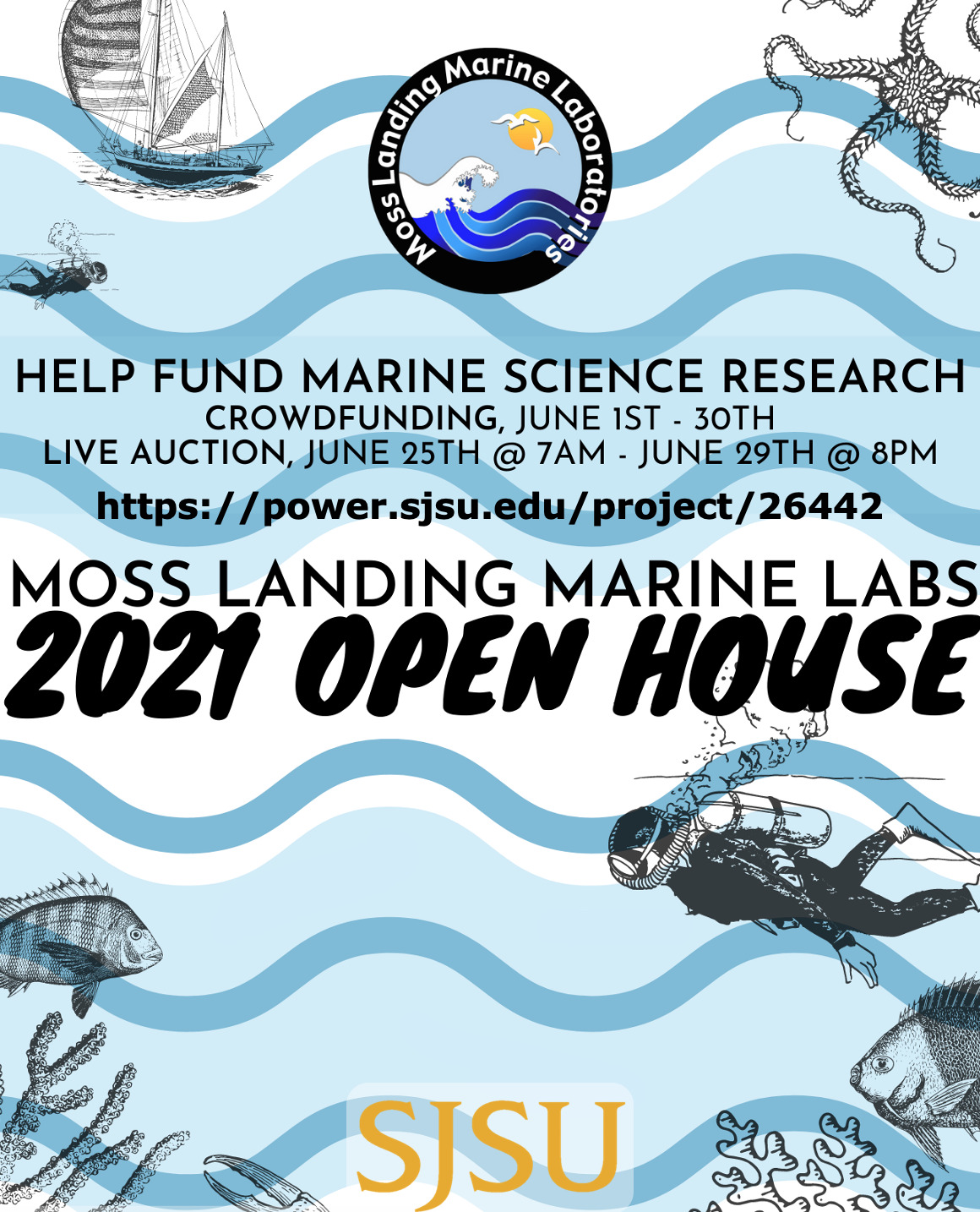
Virtual Event – Dr. Dave Ebert at the Cabrillo Marine Aquarium Discovery Lecture Series – June 4
Dr. David Ebert presents:
"Searching for Lost Sharks"
Cabrillo Marine Aquarium | Discovery Lecture Series
Friday, June 4th, 2021 from 7:00-8:30pm pdt
About the speaker:
Dr. Dave Ebert is director of the Pacific Shark Research Center and a member of the SJSU/MLML research faculty. He has devoted his life to studying the ocean's most elusive, dangerous and yet fascinating predator - the shark! His adventurous search for Lost Sharks has taken him from his modest hometown in California to the Emperor’s glorious Palace in Tokyo, the dazzling Skeleton Coast of Namibia, and the vibrant streets of Cape Town. His global explorations have led to the discovery of over 50 new shark species.
California Sea Lion Bowl – Virtual Event – February 6th
The Sea Lion Bowl is one of 25 regional ocean science competitions, the winners of which compete in the National Ocean Sciences Bowl. The Sea Lion Bowl has been hosted by the California State University, Monterey Bay College of Science since 2017. While typically CSUMB hosts between 150-200 high school students and their coaches at an all day in-person event, this year the entire bowl will be held virtually on February 6, 2021. Teams of students from high schools across Northern California will compete in the quiz show-like competition. The students will answer marine science questions in the fields of Biology, Geology, Chemistry, Geography, Marine-Policy, Oceanography, and Ocean Technology on the level of undergraduate marine science majors.
Moss Landing Marine Laboratories is honored to contribute to this event and help promote the importance of STEM to high school students. Several MLML students will be volunteering at the bowl and we will also be hosting a virtual booth featuring information about our research and educational opportunities. To learn more about the Sea Lion Bowl and how you can get involved, please visit the event website.
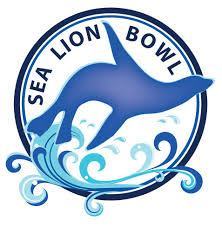
California Sea Grant Webinar – Restorative Aquaculture in California – November 19th
Restorative Aquaculture in California Webinar
Thursday, November 19, 2020 from 5:00-6:00pm PST
California Sea Grant and Save Our Shores are pleased to present a short introduction to three of the restoration and conservation oriented aquaculture activities underway in California. Tune in to this webinar hosted by SJSU/MLML research faculty member Dr. Luke Gardner to hear about endangered white abalone’s road to recovery, efforts to rebuild decimated Olympia oyster populations, and sea urchin ranching with a view to restore our kelp forests.
Learn more and register here.
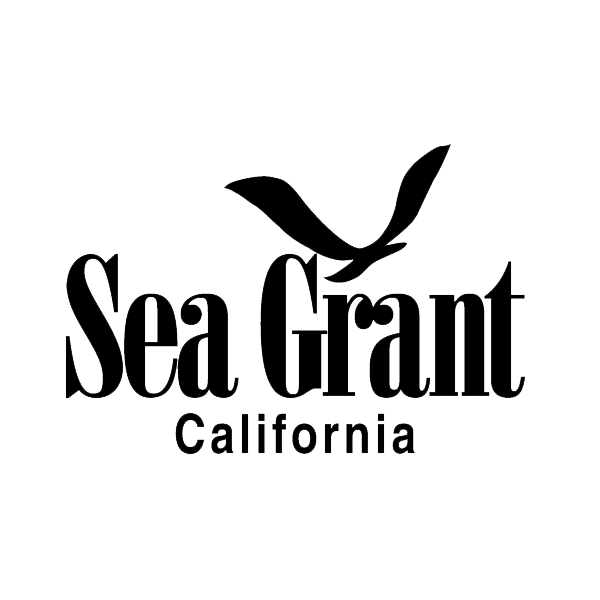
Event Recording – 8th Annual MLML In-House Open House
At the start of every fall semester, Director Jim Harvey hosts the annual Moss Landing Marine Laboratories In-House Open House to welcome new students and introduce them to the incredible research community at MLML. This event features all SJSU/MLML faculty members and research affiliates presenting 2 minute, 2 slide talks about who they are and what they do.
This year we hosted the 8th Annual MLML In-House Open House virtually due to Covid-19. We invite you to watch the recording and learn more the brilliant marine science research we are doing all over the world.
Webinar – SJSU College of Science Virtual Seminar – May 1st
Phil Heller, SJSU Department of Computer Science
Presenting: "Software Without Algorithms: Deep Learning in the Deep Ocean"
SJSU Webinar | May 1st, 2020 at 4pm

Abstract:
Deep Learning is an artificial intelligence technique that is especially successful at processing images. Although it is widespread in society, it is not well understood outside the Computer Science research community. This talk will explain Deep Learning in lay terms and then will describe 3 ways it is being applied in the Heller research group, which develops computer analysis techniques for understanding the effects of climate change on the world's oceans.
Webinar – Passive Acoustic Monitoring in California’s National Marine Sanctuaries by MLML alumna Angela Szesciorka
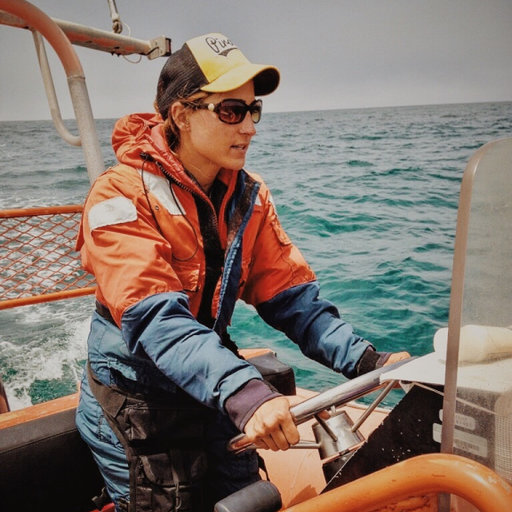
Register Here (free)
Date/Time: February 19, 2020 at 2 pm Pacific / 5 pm Eastern
Presented by: Samara Haver, Ph.D candidate at Oregon State University; Angela R. Szesciorka and Vanessa ZoBell, Ph.D. candidates at Scripps Institution of Oceanography
Description: Acoustic signals travel quickly and efficiently over long distances in the aquatic environment; thus, sound has become the principal sensory modality used by many marine animal species. This is particularly true for acoustically oriented marine mammals that rely on sound to communicate, perceive their environment, detect and avoid predators, forage for food, and navigate. Passive acoustic monitoring (PAM) is used to measure, monitor, and determine the sources of sound in underwater environments, enabling scientists to eavesdrop on the acoustic behavior of marine animals (e.g., whale song, fish chorusing, snapping shrimp), natural abiotic sounds (e.g., wind, earthquakes), and human generated sounds (e.g., cargo vessels). By utilizing PAM tools in national marine sanctuaries, researchers are able to collect data to answer questions about these valuable marine habitats and provide important condition information to managers and policymakers. In this webinar, three Ph.D. candidates that are NOAA Dr. Nancy Foster Scholars will discuss current PAM research efforts taking place in some of California’s national marine sanctuaries.



